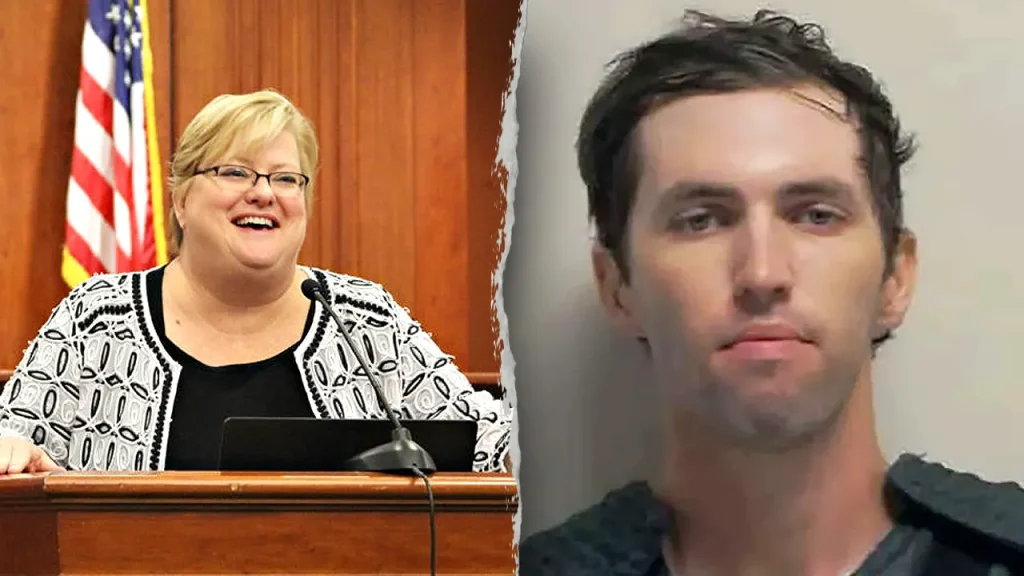The Financial Burden of Justice: Utah Taxpayers Foot the Bill for Charlie Kirk’s Alleged Assassin’s Defense
In a stunning development following the tragic shooting at Utah Valley University, Utah taxpayers are now shouldering the considerable financial burden of defending Tyler Robinson, the man charged with Charlie Kirk’s murder. After the September 10 incident that left Kirk fatally wounded, Robinson faces multiple serious charges including aggravated murder, obstruction of justice, felony discharge of a firearm causing serious bodily injury, witness tampering, and commission of a violent offense in the presence of a child. The Utah County Commission has initially allocated $1 million toward the prosecution and defense teams, fulfilling what they described as their “constitutional responsibility” to provide qualified legal representation for defendants who cannot afford it. However, criminal defense experts suggest this initial sum may be just the tip of a very expensive iceberg.
The gravity of this case has necessitated the appointment of Kathryn Nester, a highly experienced former federal public defender with three decades of experience. Utah defense attorney Greg Skordas, who initially assisted the county in finding appropriate representation, explained the specialized requirements for attorneys in death penalty cases. Under Utah’s Rule 8, defense attorneys must be “death qualified,” meaning they must have extensive experience with criminal cases, specifically murder trials, and specialized training in death penalty representation. This specialized expertise comes at a premium, and while there is a contract in place regarding finances, Skordas candidly admitted there’s “no ceiling” on potential costs. This open-ended financial commitment reflects the extraordinary complexity and stakes involved in capital punishment cases.
The financial implications of Robinson’s defense vary dramatically depending on whether prosecutors pursue and secure a death sentence. Criminal defense attorney Neama Rahmani offered a sobering assessment, suggesting that if Robinson receives the death penalty, the total cost to Utah taxpayers could exceed $10 million when accounting for the lengthy and complex appeals process that follows capital punishment verdicts. This staggering sum represents not just the immediate trial costs but the years—potentially decades—of mandatory state and federal appeals that accompany death penalty convictions. Even without a death sentence, Rahmani estimates the costs would still reach into the millions, highlighting the extraordinary expense of high-profile murder trials regardless of their outcome.
Utah-based criminal defense attorney Skye Lazaro corroborated these financial projections, estimating that Robinson’s defense will cost taxpayers “at least a couple million dollars” in the best-case scenario where the death penalty is not applied. Lazaro agreed that Rahmani’s $10 million estimate wasn’t “off base” if a death sentence enters the equation, adding that it’s difficult to even quantify the total cost given the prolonged legal battles that follow capital convictions. This sobering financial reality places Utah taxpayers in the uncomfortable position of funding an extraordinarily expensive legal process for someone accused of a heinous crime, yet the constitutional guarantee of adequate defense representation necessitates this expenditure.
The case exemplifies the tension between fiscal responsibility and constitutional obligations in the American justice system. While many taxpayers may find it troubling to fund the defense of an alleged assassin, the bedrock principles of American jurisprudence demand that even those accused of the most terrible crimes receive competent legal representation. The Utah County Commission acknowledged this responsibility in their press release, framing the expenditure as fulfilling their constitutional duty despite the undoubtedly controversial nature of allocating substantial public funds toward Robinson’s defense. This tension is further heightened in death penalty cases, which universally require more resources, more specialized expertise, and more prolonged legal proceedings than other criminal cases.
As this case unfolds, it serves as a stark reminder of the hidden costs of America’s criminal justice system, particularly in capital cases. Beyond the immediate emotional and social impact of violent crime, there exists a substantial financial burden that is ultimately borne by the public. The Robinson case illustrates how a single criminal proceeding can potentially cost taxpayers millions or even tens of millions of dollars through years of trials, appeals, and specialized legal services. While debate may continue about the justice of this financial arrangement, the constitutional imperatives remain clear: every accused person, regardless of the gravity of their alleged crimes or their ability to pay, must receive adequate legal representation within our adversarial justice system, even when that representation comes with an extraordinarily high price tag for the public.


